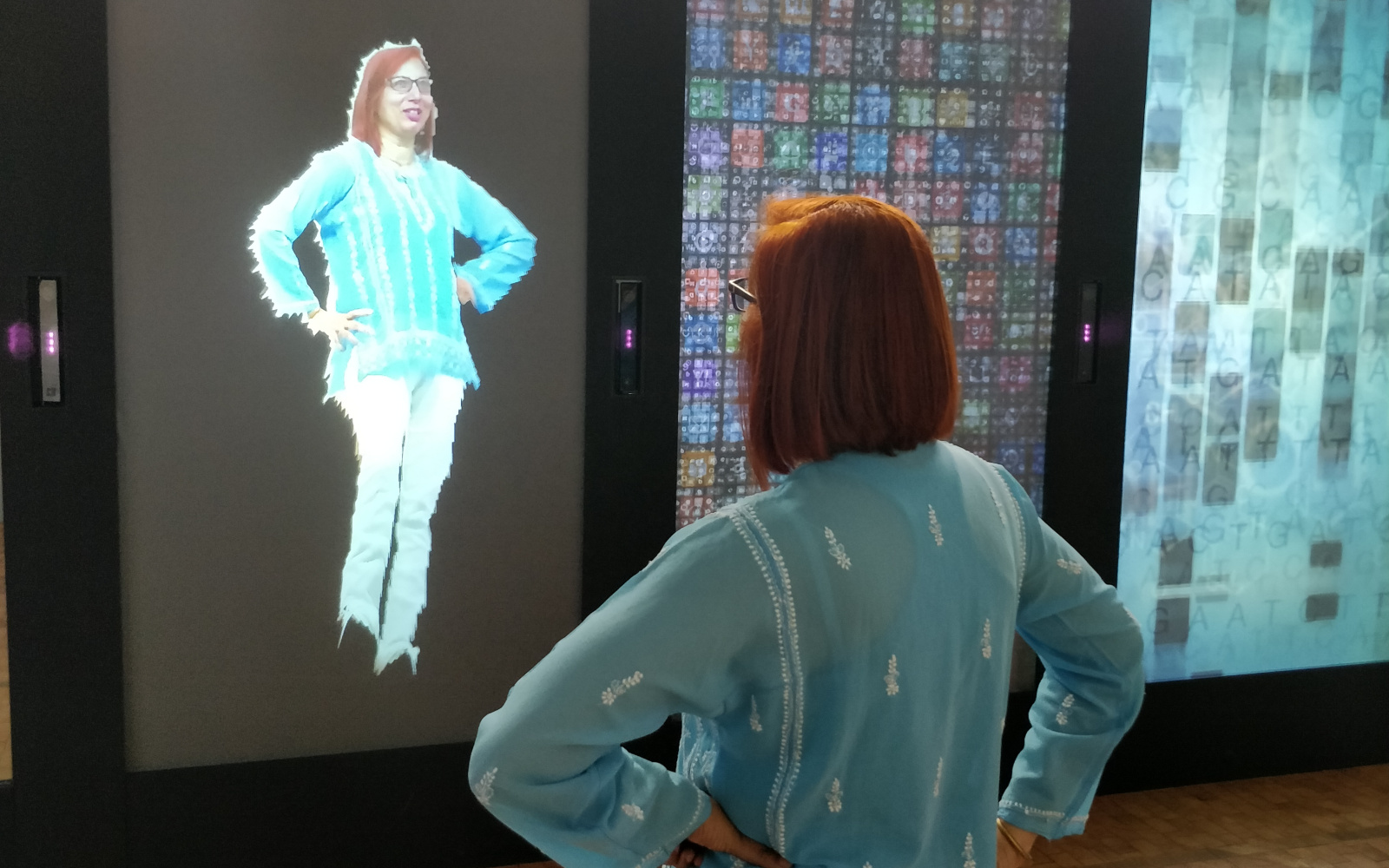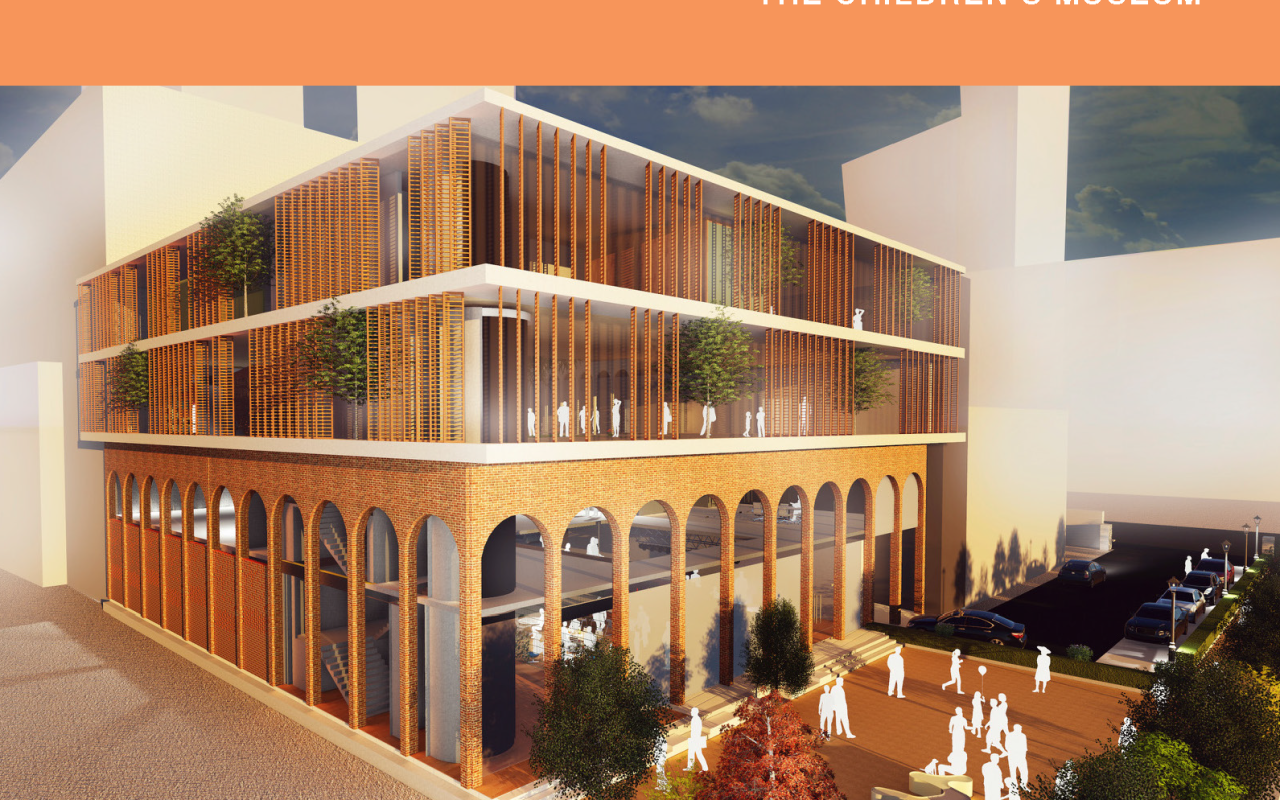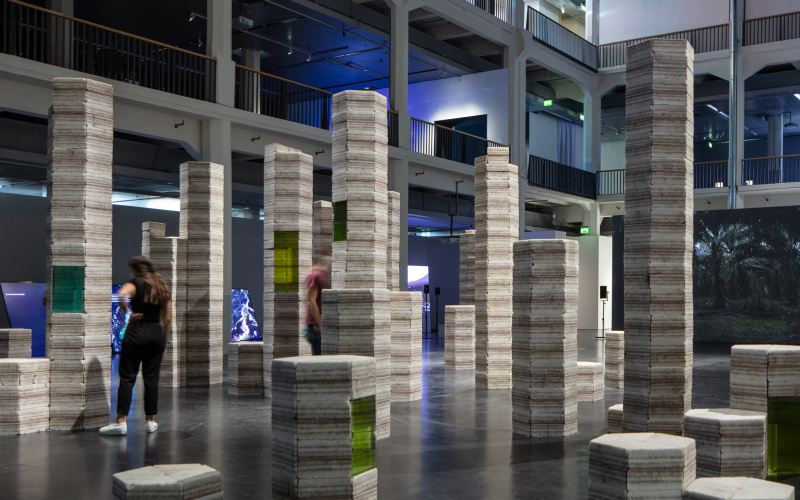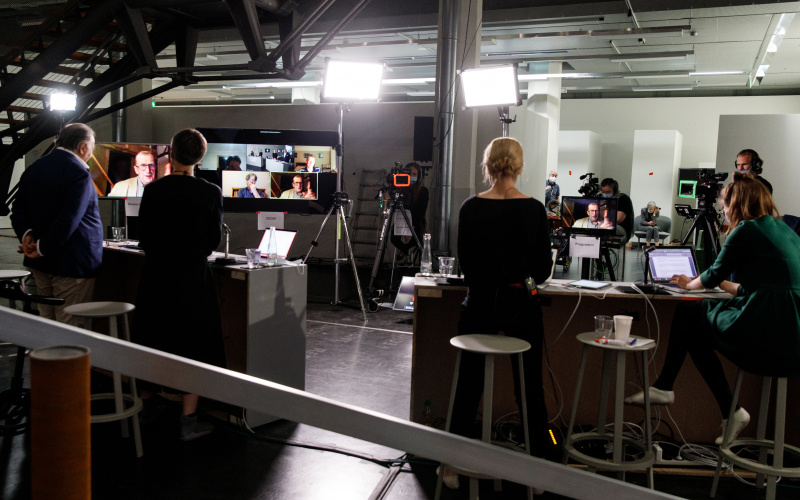Where children will lead the way!
Preeti Goel Sanghi, Cultural Manager and Fellow of the ARThinkSouthAsia program, spent one month at the ZKM and learned something about our current exhibition »Open Codes. Living in digital worlds«, but also about the various work areas of the ZKM in order to find inspiration for their newly founded »Museum of Solutions«. How can creativity be promoted and what does Preeti Goel Sanghi learn from her stay in Karlsruhe?
Preeti Goel Sanghi
»Children today can probably make the difference tomorrow. They can be the key to the door all adults are looking for, the key to shape a better future, to peace.«
Armed with this thought, the JSW Foundation, the social development division of the JSW Group (a multi-billion-dollar Indian conglomerate, involved namely in Steel, Energy, Infrastructure and Cement), is currently developing its latest initiative: The »Museum of Solutions«, MoS, (just a working title for the project), which literally translates into the creation of an interactive immersive environment in Mumbai that will provide children with real life experiences to inspire and help them become change makers. The vision is to create an iconic space where children can create solutions to the world’s problems today.
The first of its kind, a pioneering initiative has led me as part of the team that is working to develop this concept into reality, to visit the ZKM | Karlsruhe with a view to understand its working and to understand how new institutions that challenge the conventional or current paradigm of thinking are created.
Preeti Goel Sanghi
»The vision is to create an iconic space where children can create solutions to the world’s problems today.«
The key question at this moment is mainly a debate on its identity. Although the working title of this project MoS includes the aspect that it is a museum, how to position it such that it is not like a conventional museum or center (art/ dance/ drama/ music), nor a type of school nor maker workshop nor tinkering laboratory nor innovation hub. What should the name really encapsulate and how do you create a new, separate and distinct individuality or discourse with this?
In order to cultivate children as brave and creative thinkers, we need to empower them with the 21st century skills and proficiency in design thinking so that they can develop solutions for a better world today. Thus the space should be able to:
- Sensitize children and give them a better understanding of the world around them.
- Empower children to believe that they can make a real difference in the world.
- Enable them by providing them requisite skills and opportunities to design and execute real-world solutions.
Some of these responses I am exploring with my observations of the »Open Codes« exhibition at ZKM. These are mainly centered on how do you get an envisaged target audience to come to visit – what insights do you leverage? How can spaces and exhibits be used to nurture creativity, collaboration and encourage the development of critical thinking and communication skills.
The current thinking so far is to experience design and programming through the Design for Change FIDS methodology. FIDS is a concept based on the principles of Design Thinking. Created by Kiran Bir Sethi and her colleagues at the Riverside School in Ahmedabad, India, it was developed to encourage students to follow the design process through the four phases of »Feel, Imagine, Do and Share«. The model is simple, intuitive and extremely successful.
By Preeti Goel Sanghi
Preeti Goel Sanghi is an architect with experience in design, journalism, teaching, research, development and heritage. She currently heads as the Art, Culture and Heritage section of the JSW Foundation. She is an ARThinkSouthAsia (ATSA) 2017 Fellow on a 30 day secondment at ZKM | Karlsruhe (April-May 2018).
News Type
News Category
- take a look… behind the scenes of ZKM




